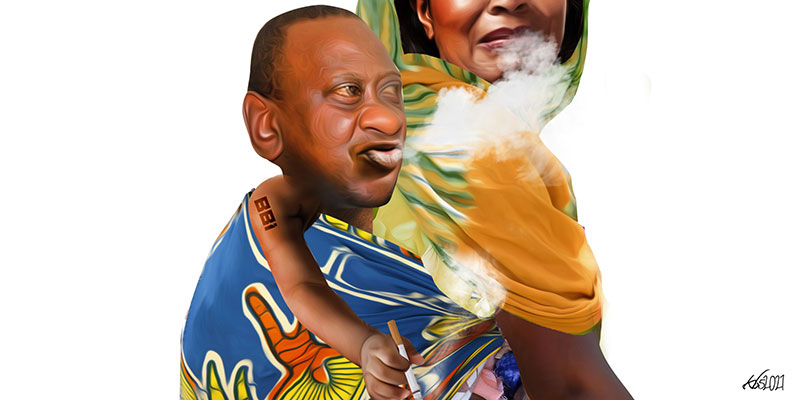In the lead up to the 2017 presidential elections, both Gikomba and Ngara were the bastions of Jubilee Party support, and more so its candidate Uhuru Kenyatta. Scarcely three years after President Uhuru made his supporters go to the polls twice in 80 days (August 8 and October 262020), the mere mention of President Uhuru in a conversation among the traders oftentimes leads to heated debates and near fist fights. “We’ve said in this market [Gikomba] we don’t want Uhuru’s name mentioned. It leaves a bad taste in our mouths,” said one of the traders. At Ngara Market, the traders had ostracised one of their own for irritating them with his continued support for President Uhuru.
Apart from the promise of a car grant, it is alleged that each MCA received a “sitting allowance” of KSh200,000.
“It took us a long time to realise that the Kenyatta family has always been interested in their self-promotion and self-perpetuation. We the rest of the Kikuyus have been cogs in a wheel, to propel the family to economic and political power. This time round we’re saying loudly that we are tired of the Kenyatta family,” said Kihara. “In all the years that I’ve been at Ngara Market, this road next to the [Nairobi] River had never been repaired, you wouldn’t even have known a road existed, it had completely chipped away, but the other day it got a face-lift. Why? Because the family has bought two properties, which it has been developing and which Uhuru comes to supervise, often at night”.
Kenyatta fatigue
“It took us a long time to realise that the Kenyatta family has always been interested in their self-promotion and self-perpetuation.”
The BBI is a ploy by the Kenyatta family to continue maintaining a stranglehold on national politics through deceit and subterfuge.
Nested games
For who is intended the creation of an imperial presidency more powerful than the presidency enshrined in the 2010 Constitution?
Raila’s isolation
All that effort and money thrown around the report is about one thing – containment of Raila Odinga.
Raila had categorically stated that no changes would be accommodated in the BBI II document other than punctuation marks. Of course, the changes in the document went beyond the said punctuation marks. Whatever the outcome of the BBI document’s true agenda, 16 months to the 2022 general elections, Kenyans will witness political brinkmanship at its worst even as the BBI II document is shaped and re-shaped to fit the needs of its heavily invested architects as they play out their nested games.
This article has been adapted from its original source.
——————————————————————————————————————————————————————————
Statements, comments or opinions published in this column are of those of the author(s) and do not necessarily reflect the editorial policy of Warsan magazine. Warsan reserves the right to moderate, publish or delete a post without prior consultation with the author(s). To publish your article or your advertisement contact our editorial team at: warsan54@gmail.com

